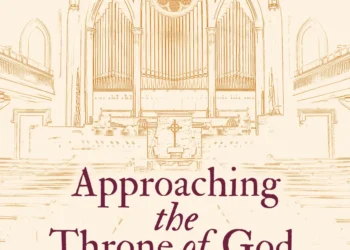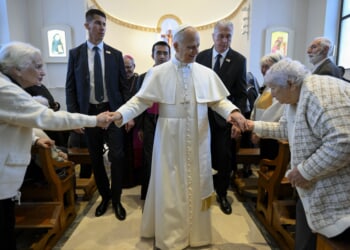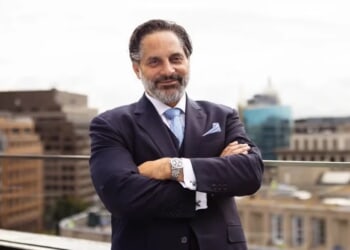Should Jimmy Kimmel still be on the air? The tone of his monologue upon returning after his suspension suggests the answer is yes. While there was plenty of self-righteousness and deflection, Kimmel did get emotional when he stated it was not his intention to make light of Charlie Kirk’s murder or blame a specific group (MAGA supporters) for the murder. He also thanked conservatives like Ben Shapiro and Ted Cruz for standing up for him. Perhaps that is sufficient penance. (RELATED: Unapologetic Jimmy Kimmel Still Delivering Politics Instead of Punchlines)
It’s an important question as we try to determine the appropriate social consequences for offensive speech. Employers have fired many people who publicly celebrated Kirk’s assassination, and many on the political right have approved of that. Critics on the political left are now charging conservatives with practicing the same cancel culture they have spent the last decade denouncing.
But to believe that, one must believe that there is no difference in firing someone who celebrates an assassination and firing someone who, a la Gina Carano, makes an insensitive comparison. Of course, there is a difference, and it is the difference between accountability culture and cancel culture.
In accountability culture, the punishment is proportionate to the offense. There are few expressions more vile than reveling in the murder of an innocent person. To do it publicly is beyond reprehensible. If you doubt that such people should lose their jobs, consider that companies fire employees who use racial epithets — as well they should. If that is a fireable offense, then you deserve to lose your job as a cheerleading coach if you post a video saying, “You fucking got what you fucking deserve. I just saw the fucking video, it looks like you got shot in the neck or chest.” You deserve to be kicked out of school if you dance around a Charlie Kirk tribute while chanting, “Fuck y’all homie dead, he got shot in the head!”
By contrast, cancel culture demands punishment when no offense exists or demands a punishment disproportionate to the offense. Examples of the former include Kieran Bhattacharya, a medical student banned from the University of Virginia for questioning the definition of a microaggression, and John Gibson, who was fired from his job at video-game developer Tripwire Interactive after he sent out a tweet praising a Texas pro-life law.
Gina Carano is an example of the latter. In February 2021, the mixed martial arts fighter and actress compared the political climate in the U.S. to Nazi Germany. “Because history is edited, most people today don’t realize that to get to the point where Nazi soldiers could easily round up thousands of Jews, the government first made their own neighbors hate them simply for being Jews. How is that any different from hating someone for their political views?” she wrote on Instagram. Shortly thereafter, she was let go from her role on The Mandalorian.
Although she probably didn’t intend to, Carano trivialized the horror that was Nazi Germany. Many people were rightly offended, including those who had survived the holocaust. Surely, she should have faced consequences. But did she deserve to be fired? What she said was insensitive, but it wasn’t vile. She didn’t celebrate Nazi atrocities. Indeed, implicit in her remarks was a condemnation of Nazi Germany. She should have been required to apologize, perhaps even face a temporary suspension from the show. Firing her took it too far.
Cancel also fails to take into account context. Carano’s remarks might have merited the loss of her job if she had said them during a time of rising Nazi violence. She didn’t.
Those celebrating Kirk’s death are doing so in the context of increasing assassinations that are egged on by an amen chorus. After 2016, multiple celebrities and politicians have called for punching Trump in the face, his assassination, and blowing up the White House. No doubt Thomas Matthew Crooks and Ryan Wesley Routh thought they’d have a lot of defenders when they tried to kill Trump. And, indeed, many people online celebrated the assassination attempts. That likely provided an incentive to Luigi Mangione, the man who assassinated UnitedHealthcare CEO Brian Thompson. Mangione has developed a cult following, with many praising him as a hero. What all of these instances have in common is that there were almost no consequences for those who celebrated.
Tyler Robinson surely saw this and figured he’d be cheered as a hero, too. He wasn’t wrong. The only way to stop this is to impose consequences on those who hail assassins. Once potential celebrants know they will be held accountable, they will be less likely to cheer in public. When future Crooks, Rouths, Mangiones, and Robinsons realize they won’t have a fan club, they will be less likely to pick up a gun.
Kimmel stepped into this firestorm by lying about MAGA supporters. Now that he’s been suspended and given what came close to an apology, should he be back on the air? No. The reason is that he lied again. Toward the end of his monologue, he stated that Trump “was somehow able to squeeze [Stephen] Colbert out of CBS.” There isn’t a scintilla of evidence that Trump had anything to do with that. Colbert is losing his show because it is in the red by at least $40 million. Kimmel surely knows that. If Kimmel was truly repentant for lying, he wouldn’t have tossed out another whopper on his return. Until Kimmel shows some true repentance, ABC should keep him off the air.
READ MORE from David Hogberg:
The Good and the Bad: One Month of the National Guard in DC

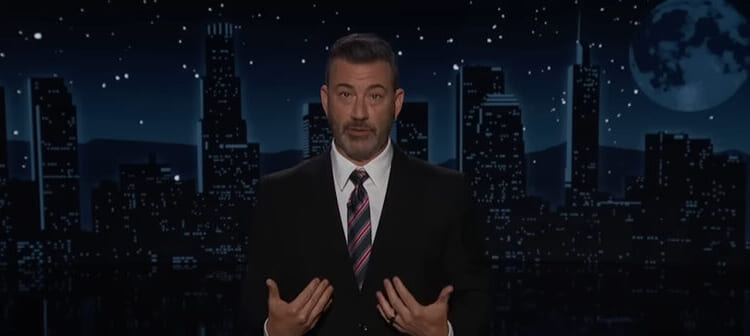
![Scott Bessent Explains The Big Picture Everyone is Missing During the Shutdown [WATCH]](https://www.right2024.com/wp-content/uploads/2025/11/Scott-Bessent-Explains-The-Big-Picture-Everyone-is-Missing-During-350x250.jpg)




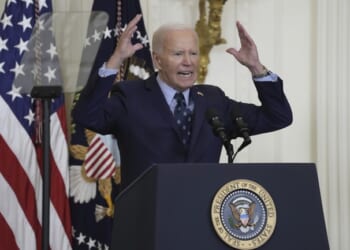

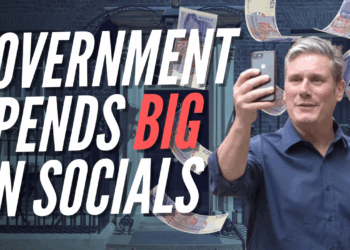
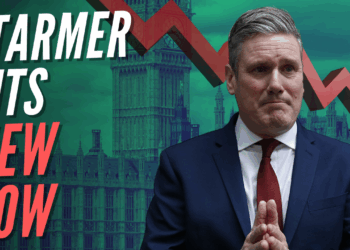
!['This is Just the Beginning... if People Don't Wake Up...' [WATCH]](https://www.right2024.com/wp-content/uploads/2025/09/This-is-Just-the-Beginning-if-People-Dont-Wake-Up-350x250.jpg)

